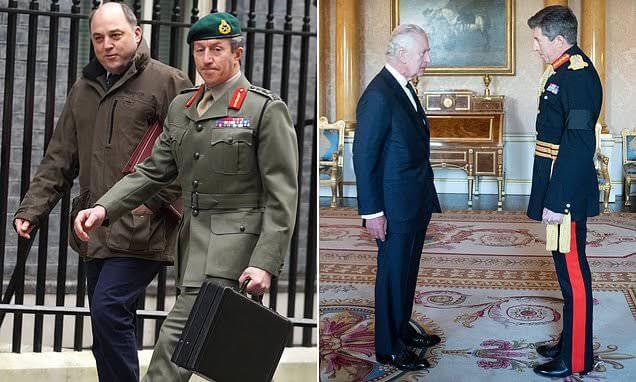One of the UK‘s most senior generals was warned in writing in 2011 that SAS soldiers were claiming to have executed handcuffed detainees in Afghanistan.
New truths about SAS executions
BBC Panorama can reveal that Gen Gwyn Jenkins, who is now the second most senior officer in the British armed forces, received accounts of conversations in which members of the SAS described extrajudicial killings.
But instead of referring the evidence to military police, Gen Jenkins placed it in a classified dossier and locked it in a safe.
The failure to refer the evidence to military police has previously been disclosed in court, but the identities of the officers involved were withheld from the public by the Ministry of Defence.

Who created the dossier?
Gen Jenkins – who was at the time a colonel in the senior ranks of special forces – created the classified dossier in April 2011 after first briefing his direct superior, then-head of special forces Gen Jonathan Page, on the nature of the evidence.
How British law affects the situation
Under British law, commanding officers are legally obliged to inform the military police if they are made aware of any evidence that a war crime may have been committed.
The dossier was hidden for 4 years
But the dossier containing the testimony remained locked in the safe for four years, known only to a handful of officers, as Gen Jenkins rose through the ranks of the armed forces, until a separate special forces whistleblower informed the Royal Military Police of its existence.
The same month that Gen Jenkins created the classified dossier, he became head of all United Kingdom Special Forces in Afghanistan.
He would go on to become the director of UK Special Forces and then vice chief of the defence staff, the second most senior position in the military – a promotion that saw him jump from a two-star to a four-star general.
The SAS executions
Last year, Panorama revealed that one SAS squadron had killed 54 people in suspicious circumstances in one six-month tour that ended in May 2011.
In March 2011, Gen Jenkins was the commanding officer of the Special Boat Service (SBS), the naval equivalent of the SAS, making him one of the most senior officers in UK Special Forces.
That month, an officer under his command reported a conversation in which a member of the SAS had allegedly confessed to him that units from the elite army regiment were unlawfully killing unarmed people and detainees during aggressive, fast-moving night raids.

The formal statement
Gen Jenkins instructed the officer to write a formal statement. In it, the officer wrote that the SAS soldier had told him that SAS units were killing all fighting-age males during night raids, regardless of whether they posed a threat.
Fighting-age males were defined by the special forces teams as anyone believed to be 15 years or over.
‘In one case it was mentioned a pillow was put over the head of an individual being killed with a pistol,’ the SBS officer wrote.
The officer also wrote that the SAS soldier implied that weapons were planted on or near the bodies of unarmed Afghans killed in the raids and then photographed in order to justify the killings – a tactic known in the military as using ‘drop weapons’.
After reading the officer’s statement, Gen Jenkins wrote directly to his superior, General Jonathan Page, then the director of UK Special Forces.Under the subject line, ‘ALLEGATIONS OF EJK BY [UKSF]’ – in which EJK stands for ‘extrajudicial killings’ – Gen Jenkins wrote that he had been aware ‘for some time’ of rumours that the SAS was ‘conducting summary executions of supposed Taliban affiliates’.
‘However, I have now been given more information of a nature which makes me seriously concerned for the reputation of [UK Special Forces],’ he wrote.












